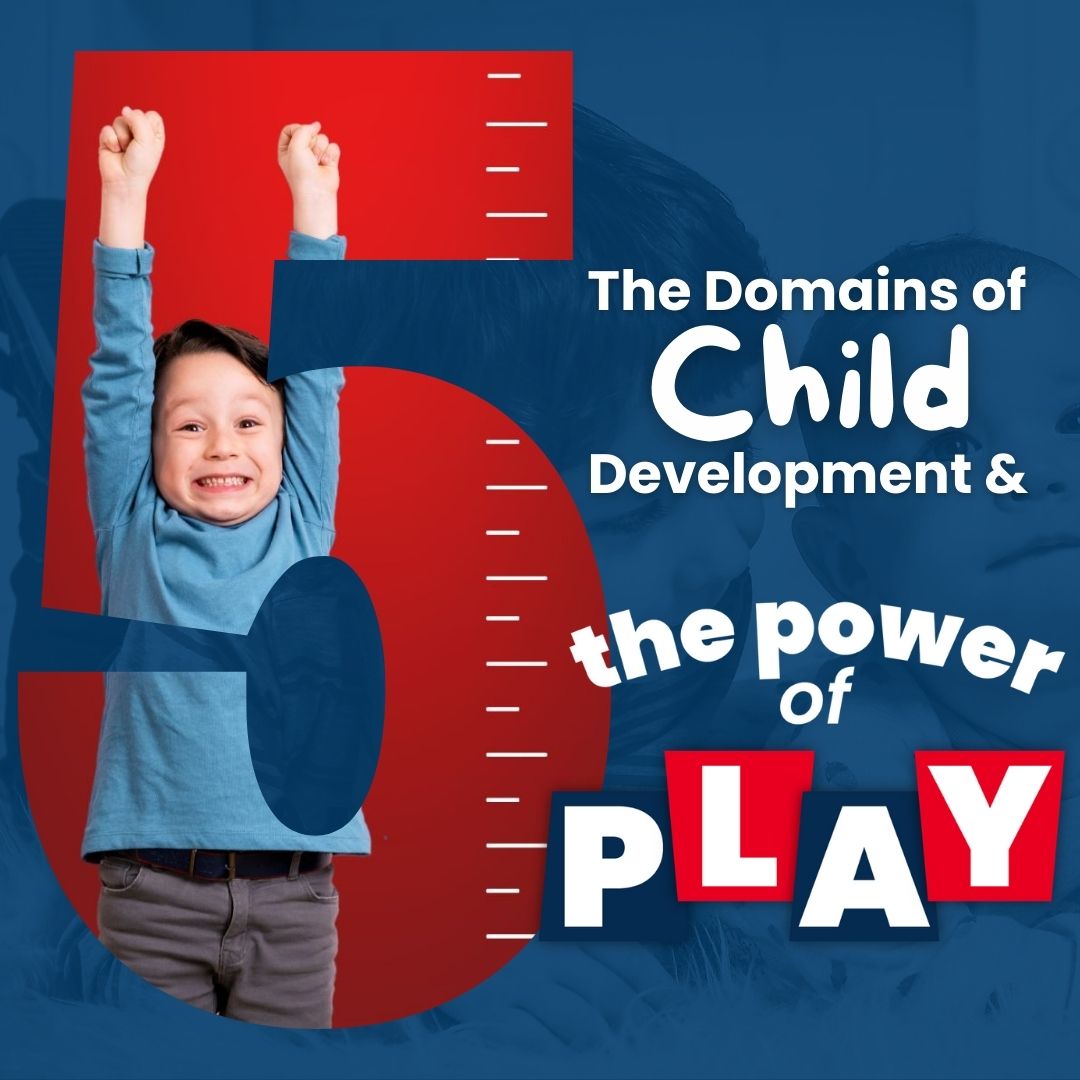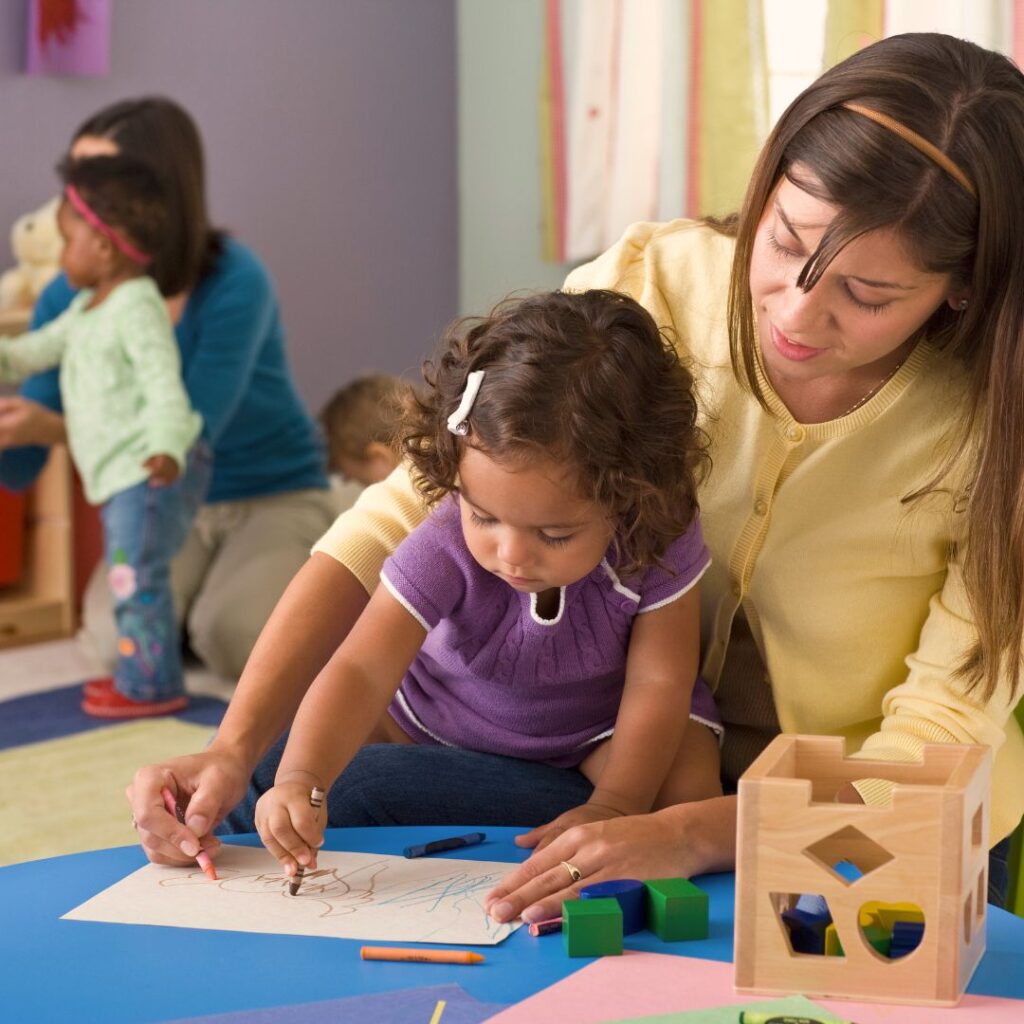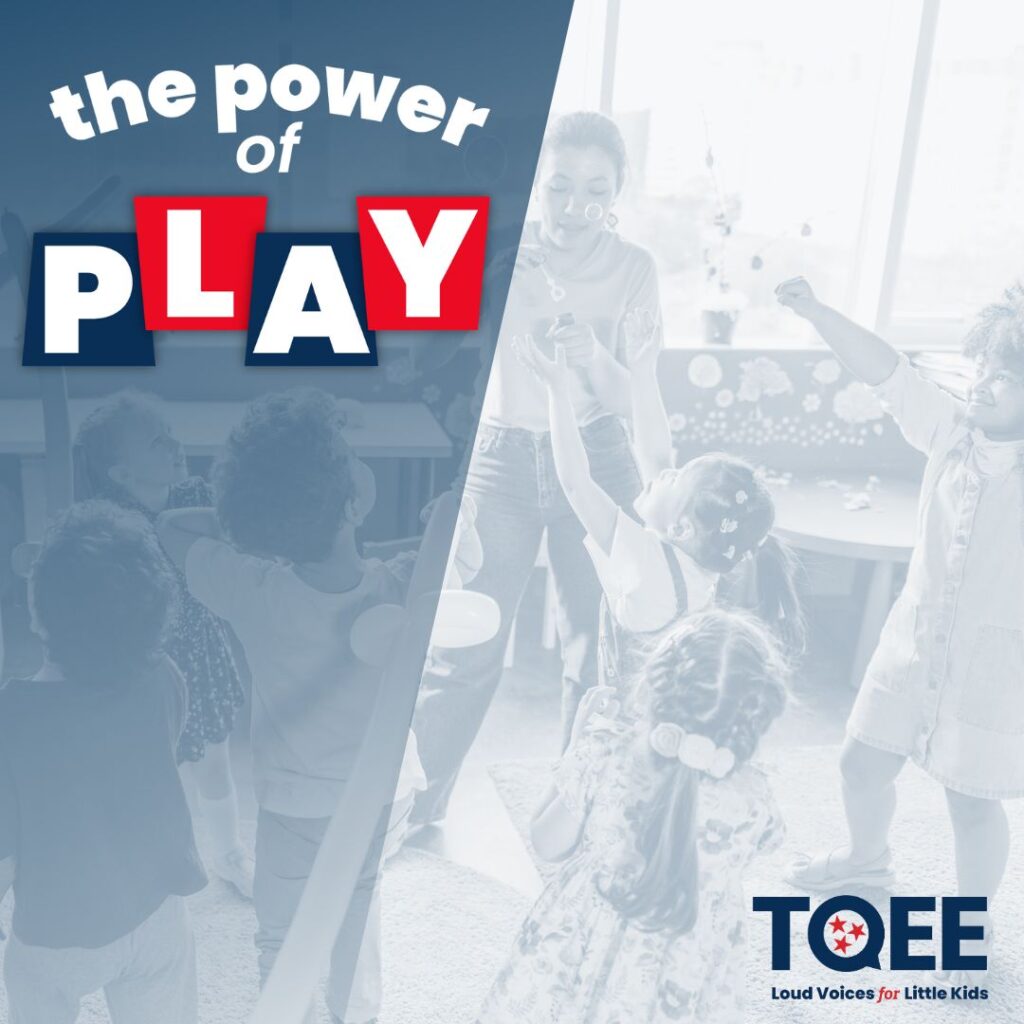Playing is crucial for early childhood development and learning – and it’s fun!
In order to Be a Loud Voice for Little Kids and advocate for early care and education, it’s helpful to understand a little bit about child development. One of the really wonderful things about supporting a child’s development is that it is FUN! That’s right, PLAY is actually the best tool to promote your little one’s learning and development.
The NAEYC (National Association for the Education of Young Children) identifies the five developmental domains – check them out below where we highlight how play supports each. Then hop over here to see a “schedule” of playbased activities tailored to support each age and stage of young a child’s development journey.
Physical Development: Enhancing Motor Skills and a Foundation for Lifelong Health
Physical Development: Enhancing Motor Skills and a Foundation for Lifelong Health
Active play is essential for physical development, particularly in young children. Activities like running, jumping, and climbing help develop gross motor skills, and build strong bones, muscles, and a healthy cardiovascular system. Fine motor skills are honed through play-based activities like drawing, building with blocks, and playing with small toys which strengthen hand muscles and enhance dexterity and hand-eye coordination. Renowned child development expert, Dr. Kathy Hirsh-Pasek reminds us: “The physical skills children develop through play – from balance and coordination to fine motor control – are not just about movement. They’re building blocks for essential life skills like writing, using tools, and navigating their environment confidently.”
Cognitive Development and Math: Fostering Critical Thinking and Problem-Solving
Learning through play encourages children to think critically and solve problems creatively. According to a study published by the LEGO Foundation, “when learning is playful, children get so immersed in creating strategies and solving problems, they’ll want to stretch their brain cells. The joy of play gives them the incentive to develop complex reasoning skills, memory, and concentration – much more effectively than being told to sit still and reel off facts.” For instance, building a tower with blocks or solving a puzzle requires planning, spatial awareness, and logical thinking. These activities help children develop the cognitive skills they need for academic success.
Social and Emotional Development: Building Confidence and Resilience
Play is a natural way for children to express their emotions and develop emotional resilience. Engaging in imaginative play allows children to explore different scenarios and roles, helping them understand and manage their feelings. The Tennessee Early Learning Developmental Standards reinforce that self-selecting play activities support curiosity and imaginative play, which are crucial for emotional development. For example, when children play house or pretend to be superheroes, they learn to navigate social roles and emotions, building confidence and empathy.
Play provides a natural context for children to interact with their peers, enhancing their social skills. Through cooperative play, children learn to communicate, share, and work together towards a common goal. The Tennessee Early Learning Developmental Standards highlight the importance of collaborative play in fostering social and personal competencies. Games like “I Spy” or group storytelling activities encourage children to engage in conversations, ask questions, and listen to others, building strong communication skills.
Linguistic Development: Developing Early Communication Skills
Incorporating play into daily routines is essential for fostering linguistic development in children. By providing ample opportunities for play, parents and educators can support children’s language acquisition in a natural and enjoyable way. Our friends with Zero to Three say, “Early language and literacy skills are learned best through everyday moments with your child—reading books, talking, laughing and playing together. Children learn language when you talk to them and they communicate back to you, and by hearing stories read and songs sung aloud. Children develop early literacy skills when you give them the chance to play with and explore books and other written materials like magazines, newspapers, take-out menus, markers, and crayons.”
Approaches to Learning: Offering Freedom to Imagine
Choosing play as a teaching style into early childhood education is crucial for developing approaches to learning – such as persistence, problem-solving, flexibility and inventiveness – that support children’s overall growth and success. By providing ample opportunities for play – both guided and self-directed — educators and parents can nurture children’s curiosity, problem-solving abilities, social skills, and creativity. Playing with various toys, blocks, craft materials give children the opportunity to use their minds in new ways. As NAEYC suggests, play is an essential context for learning, offering children the freedom to explore, imagine, and learn through direct experiences.
Playing Is Powerful!
The power of play in early education cannot be overstated! It’s a joyful, engaging, and effective way to support children’s development. So hop on over here and find out how to support the young child in your life at their specific ages and stages.





